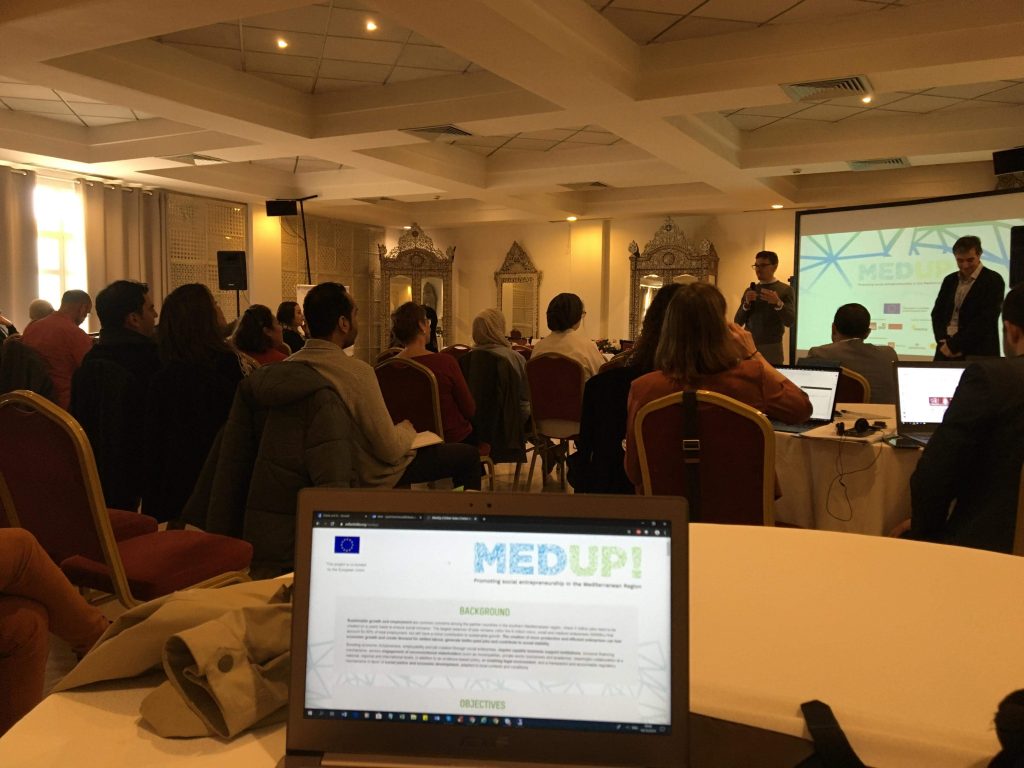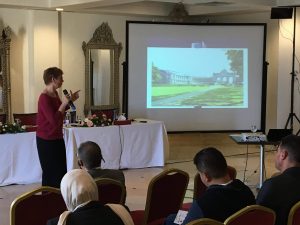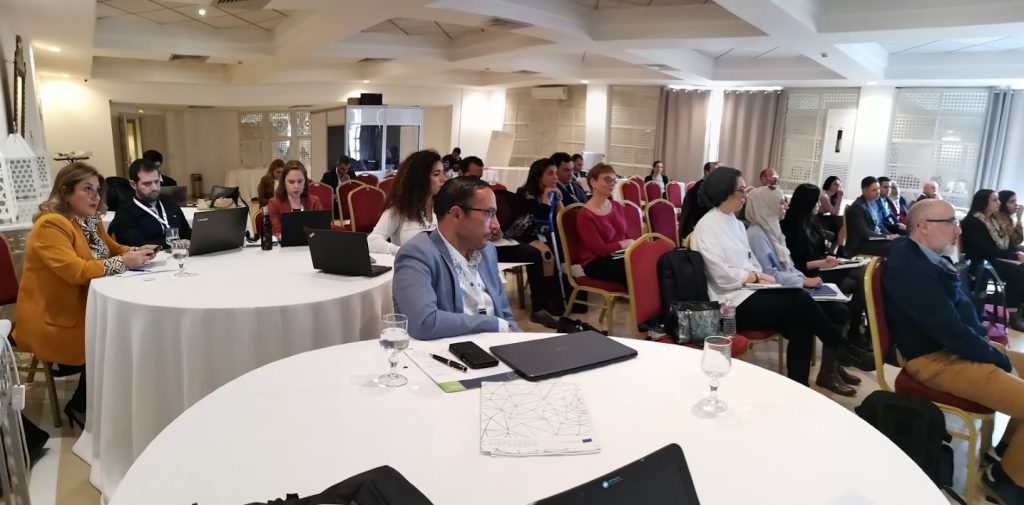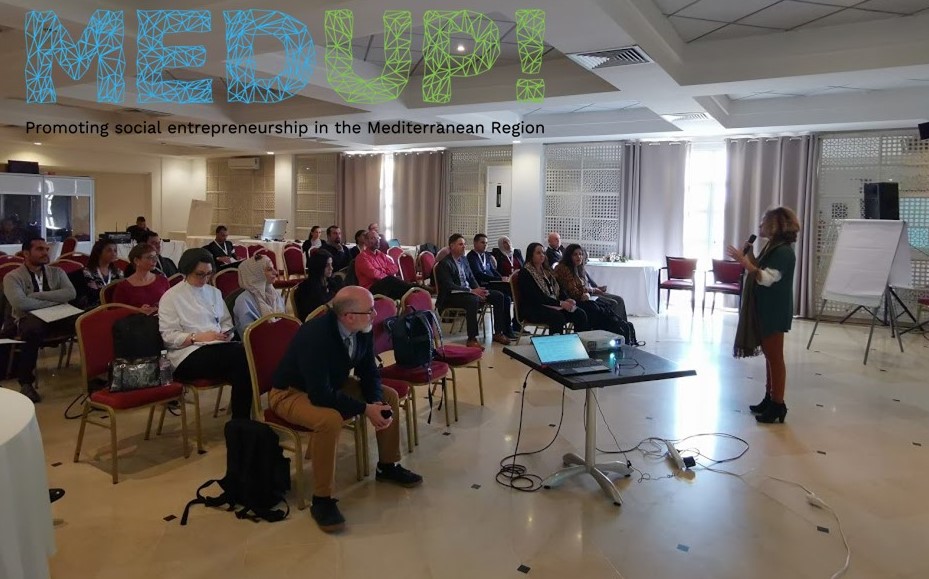From 2 to 4 December, the first macro level peer review meeting of the MedUp! Project took place in Tunis (Tunisia). Organised by Diesis Network and Oxfam Italia, this event aimed to provide an opportunity for developing shared understanding between policy makers and Social Economy stakeholders from the EU and the MENA region on a good practice strengths and weakness.
During this three day event, participants had the opportunity to discuss and share on two specific cases:
- European Commission Task Force on Social Economy and Social Enterprises
- The Scottish Social Enterprise Strategy
The event brought together over 40 participants including policy makers, NGOs staff, representatives from governments, researchers, UN official who were all committed to the global objective of the MedUp! Project: to promote an enabling environment in the Southern Mediterranean partners countries (Egypt, Jordan, Lebanon, Morocco, Occupied Palestinian Territory, Tunisia) for the development of the social entrepreneurship sector as a driver for inclusive growth and job creation.

Welcome speech and background introduction
After a welcome speech by Ms. Hela Garbi, Oxfam Country Representative in Tunisia, Mr. Cristian Bevacqua, MedUp Regional Project Coordinator, gave a presentation of the project, followed by a presentation of DIESIS and of the peer review by Mr. Gianluca Pastorelli and Mr. Samuel Barco. The first panel of speakers focused on the role of international institutions in the promotion of Social Economy. A recorded video that was sent by Ms. Simel Esim, Head and Senior Technical Specialist at the ILO’s Cooperatives Unit to the meeting, was shown to the participants. As she reminded the audience, “the concept of Social and Solidarity Economy (SSE) has been privileged within the UN system in recent years, as exemplified in the UN Inter-Agency Task Force on the Social and Solidarity Economy.” With her statement focusing on supporting gender based Social Solidarity Economy initiatives in the MENA Region, Ms. Simel Esim concluded that “SSE enterprises in general and cooperatives in particular are well-suited to advancing women’s economic participation and gender equality in the world of work in the region and around the world.” Mr. Hamish Jenkins, Senior Consultant at the United Nations Research Institute for Social Development (UNRISD), then presented the UNRISD Guidelines on Public Policies for SSE in Cities and Provinces. Ms. Naouel Jabbes, in charge of SSE in the office of the Minister of Agriculture of Tunisia, exposed the Tunisian policy towards Social Economy.
First case: European Commission Task Force
After this background introduction, the event went on with the peer review of the first case. Ms. Heinke Veit, Programme Manager at the European Commission (EC), presented the EC Task Force on Social Economy. This Task Force enabled in particularly DG GROW but also all other participants to get an overview on how the European Commission supports social enterprises and social economy ecosystems from range of different angles including policy, legislation, financing, research,…). On more practical terms it helps to get to know the relevant people, understand their expectations and ensure coherence in the approach to social economy. It also enabled Commission services to give visibility on how the EU is building ‘an economy that work for people ‘ – one of the upcoming COM President U. Von der Leyen’s political guidelines’ priorities. The audience showed great interest, particularly in the legal framework of the Task Force and how it can urge people to commit to it while it is an informal tool, based on a voluntary basis and on relations built through daily work, discussions and results. Following the peer review methodology, a tour de table of peer countries and regions presented their comment papers and discussed on the relevance, feasibility and sustainability of the approaches presented.

Second case: A Social Enterprise Strategy for Scotland
Mr. Aidan Pia, Executive Director of Senscot, introduced his enterprise and how the support from his government has seen the support landscape for social enterprises develop over the last 20 years – resulting in the evolution of an extensive support “eco-system” (see Social Enterprise Map). Scotland is frequently sued as an example of good practices in terms of SE development. Traditionally, this focuses on the relationship between the sector and Government. There are particular reasons for this – historic, statutory responsibilities, political make-up of Scotland etc – that are not necessarily transferable. However, the ability of the sector to work together is also motivated by a shared vision for what the sector can achieve and economic, social and environmental contribution. The activity of social enterprises in Scotland is wide-ranging – and importantly contributes significantly to Scotland’s National Performance Framework. Participants raised a wide range of concerns and interrogations regarding the case, from the difficulty to measure the impact of social enterprises on society to their great interest in the mapping of stakeholders done in Scotland and that would be of great use in MENA countries.

More information on: https://www.oxfamitalia.org/medup/
More pictures of the event here.
News on ILO COOP website: here.
